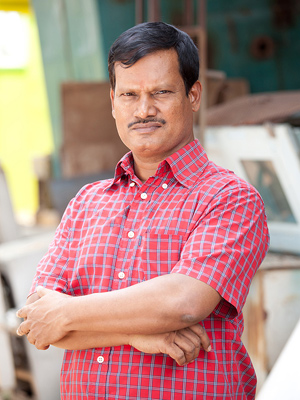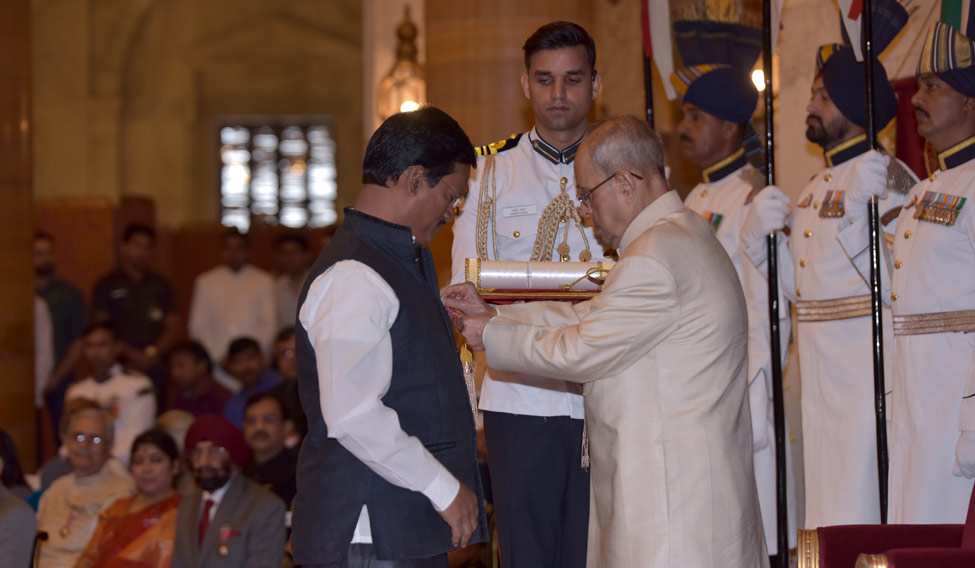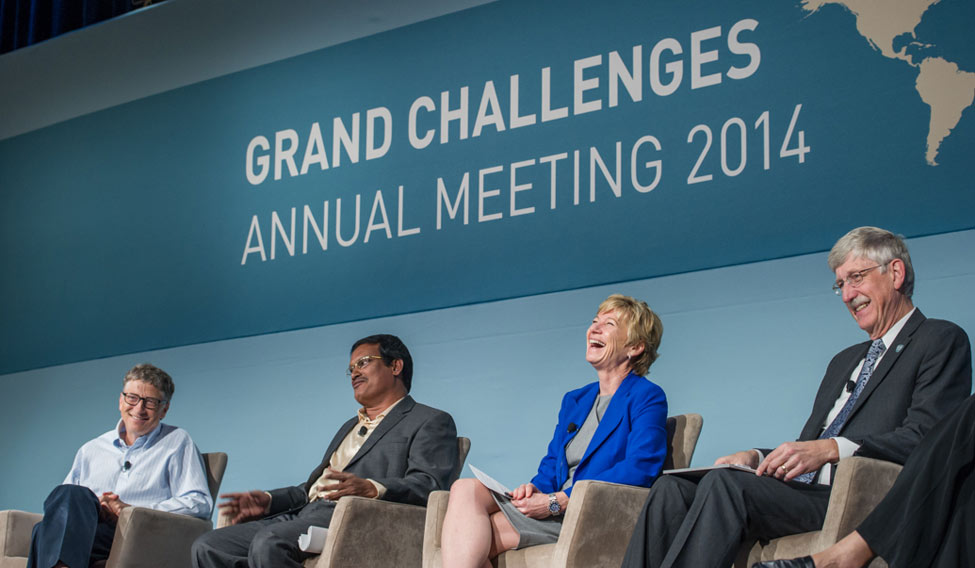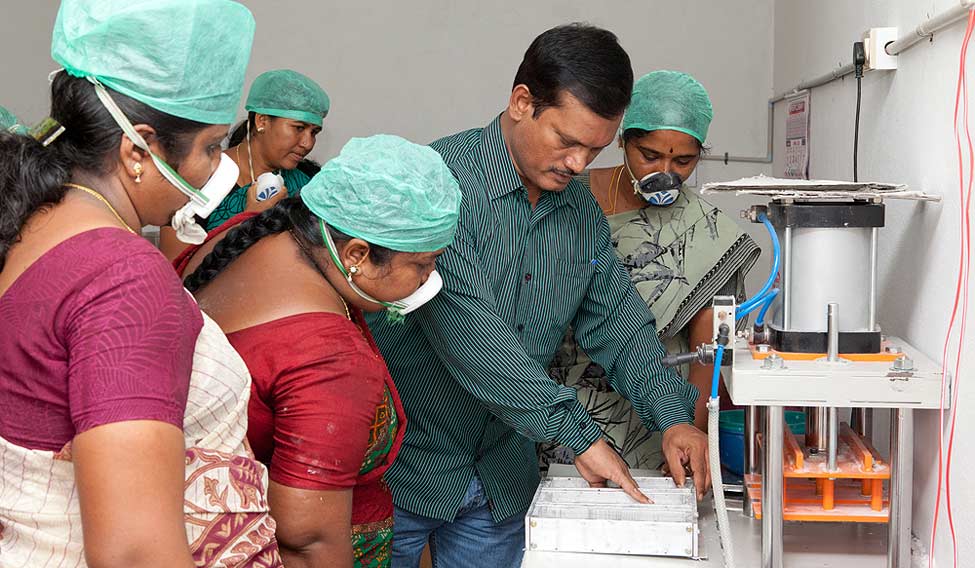Twenty years ago, the women in his village teased him saying he was possessed by evil spirits. His wife deserted him. His mother left him. His friends called him a pervert. Everyone in his small town near Coimbatore in Tamil Nadu ridiculed him saying he had a sexual disease. Everyone around him said he had gone mad. But two decades later, not just his wife and mother, but hundreds of Indian women treat Arunachalam Muruganantham as their hero. And soon, he will be immortalised on the silver screen in the film PadMan, which will star Akshay Kumar in the lead.

A school dropout from a poor family, which could not afford his studies after the eighth standard, Muruganantham, 54, has revolutionised menstrual health for women in rural India. His simple machine that can be used to make cheap sanitary pads, has made the rural women more aware about menstrual health. His 4,500 odd sanitary napkin-making machines have reached the innermost villages of Uttarakhand and also 70 other countries.
“A country becomes a developed nation not by building skyscrapers. Only when the women are empowered it becomes a developed nation and India needs to go a long way. I, too, have a long way to go in educating and creating awareness among the women,” he says.
His tryst with the production of a low-cost sanitary napkin started when he saw his wife Shanthi use a rag during her menstrual periods. “I will not use that cloth to clean even my vehicle. It was then that I thought of how most women in the rural areas, like my wife, were not aware of sanitary napkins or could not afford to buy one.” He went to the nearby medical shop to buy sanitary napkins. The person at the medical shop handed over a packet to him hurriedly, as if it was a smuggled item or a taboo. As he weighed it in his hands, he felt it was only around 10gm of cotton. But the price was 40 times more than what it was worth.
And so, Muruganantham decided to make cheaper napkins. But things did not turn out as he had expected. He made a sanitary pad out of cotton and gave it to his wife for 'testing'. She told him to wait for a month. But Muruganantham was impatient and decided to go ahead. But asking women to try his napkin was not an easy task. Even his sisters refused.
 Muruganantham receives the Padma Shri from President Pranab Mukherjee
Muruganantham receives the Padma Shri from President Pranab Mukherjee
So, he decided to test it upon himself! He created an artificial 'uterus' with a football bladder filled with goat’s blood and punching holes into it. He got the blood from one of his classmates who was a butcher and mixed an additive in the blood to prevent clotting. Then he wore one of his napkins and cycled, walked and even ran, all the while pushing blood into the napkin. He washed the blood stains beside a public well, thus earning the ridicule of the people. But it did not deter Muruganantham whose only aim was to invent cheaper sanitary napkins.
His cotton napkins, however, did not work. It took him two more years to learn how the napkins are made the material used in them. The machines that the corporates used to make the napkins were expensive. So, Muruganantham decided to design his own machine. Now, not only do his cheaper machines roll out several lakhs of affordable sanitary napkins but also provide jobs for women. “I have dedicated my whole life for this. I want to break the taboos associated with menstruation,” says Muruganantham.
Ask him whether he sold or donated these 4,500 machines to women entrepreneurs, he replies, “I am not a philanthropist. I am an entrepreneur. I cannot afford to run my industry at a loss.” Interestingly, Muruganatham, when he supplied his Rs 1 lakh worth machine to a village in Uttarakhand, he got goats and buffaloes for the machine instead of money. “It was like barter system,” he remarks. Apparently, thanks to his efforts, in some villages in Uttarakhand, Bihar and Uttar Pradesh, women nowadays buy napkins not in packs, but as per their requirement, and that, too, in exchange for onions or tomatoes or potatoes.
 Muruganantham, along with Bill Gates (extreme left), takes part in the Grand Challenges Annual Meeting 2014 at the Westin Hotel in Seattle, Washington | Photo courtesy: The Bill & Melinda Gates Foundation
Muruganantham, along with Bill Gates (extreme left), takes part in the Grand Challenges Annual Meeting 2014 at the Westin Hotel in Seattle, Washington | Photo courtesy: The Bill & Melinda Gates Foundation
“The corporates sell it in bulk or small packs. But the menstruation cycle is not the same for every woman. Some will have heavy flow and will need thick napkins, some women will need more number of napkins. Keeping all this in mind, I have designed the machine that can produce bulky or big napkins as per the requirement,” says Muruganantham. His machine, designed, manufactured and distributed by his Jayaashree Industries, is a women-to-women model.
He did not rest on his laurels after discovering the machine, or after being honoured with the Padma Shri award in 2016. He works with the women centres in the villages to create awareness about menstrual health. “Recently in Uttar Pradesh, one girl committed suicide as she did not have her periods on time and thought she was pregnant. The centres will work among such women,” he says.
Any woman can walk into the centre, talk to the women there about menstruation, or can get themselves tested for pregnancy. They will be then immediately referred to a gynaecologist. Women are also advised on how to use sanitary napkins, to prevent them from urinary tract infections.
“Anyone can set up the centre in any village or town. We will provide the complete technology,” says Muruganantham.







